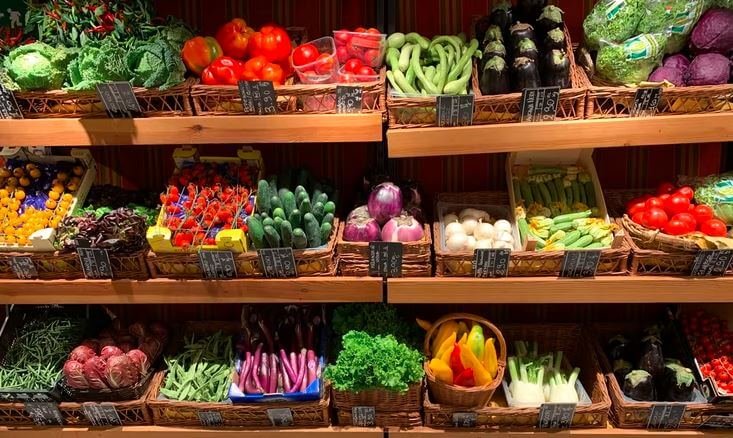Grocery stores are fast-moving businesses in Kenya. The high demand for their products enables the owners to make profits within a short time. It’s essential to choose the location of your grocery store carefully because the products are perishable. Today you’ll know how to start a grocery store in Kenya easily.
Grocery stores are highly competitive because they need a small capital to start. Both “vibandas” and fresh produce stores in shopping malls target your potential customers. To have the edge over your competitors, you’ll need to plan well. The marketing strategy to use should bring potential customers to the store.
The level of customer retention will determine your success. If you’re planning to sell the supplies or employ a shopkeeper, customer relations are fundamental.
Read on to learn how to start a grocery store in Kenya easily. You’ll also know factors to consider before starting a grocery store in Kenya.
1. Writing a Business Plan
The first step to starting a grocery store is writing a business plan. The plan is like a roadmap towards opening your shop. A good business plan needs to include:
Start-up capital
Write down estimates of capital you’ll need to run the business. Planning a budget will help you develop a viable capital estimate. When paying for grocery store costs like rent and permits, it’s advisable to stick to the budget.
Source of Capital
You can start the business with your savings. It’s vital to ensure you check your bank account balance. If you’re short of capital, check out the sources of instant business loans in Kenya. You can look for funding from friends and relatives
A small grocery store requires approximately Kshs 50,000 to start.
Grocery Supplies
List down the supplies you’ll require for your business to succeed. You can check the products other stores around are selling. Maximize the fast-moving products.
Some of the fast-moving grocery products in Kenya are:
- Mangoes
- Apples
- Watermelons
- Avocados
- Kale
- Spinach
Competition
A business plan should indicate ways of competing with other businesses. You can include existing gaps you’re trying to fill. For instance, if most groceries stores around are selling watermelons, get a different product like pawpaw.
You can also use the pricing strategy to counter market competition. Note that by pricing strategy, it does not mean that you have to undercut your competitors as this will result in losses. You can use a strategy like penetration pricing if you’re introducing new products in the market. The strategy entails offering your grocery products at lower prices in their initial market stages.
Related: Businesses to Start With 10K in Kenya
Marketing Strategy
When writing a business plan, indicate strategies for reaching potential customers. Customers aren’t aware of your new business and the grocery products you sell. To get them to buy from your store, they’ll need to know your business’s existence.
There are many marketing strategies in this digital era. However, you must choose one that aligns with your business. A good marketing strategy is one that:
- Targets your potential customers: The marketing strategy must target your customers from where they’re located. For your grocery store, you’re targeting the youth and women mostly. In this case, target places where women and youth hung out like on Instagram and Facebook.
- Is innovative: You need a strategy that explains to your customers what benefits they get by using your products. If you decide to use videos, explain how healthy your fruits and vegetables are.
- Strategic: Have a monthly marketing plan that clarifies what you aim to achieve by using a certain marketing tactic. The plan will help you to know where to put more marketing efforts.
You can use marketing strategies like social media, banners, and posters. However, remember to analyse your market base to know where your potential customers are.
2. Choosing an Ideal Location for Your Grocery Store

Selecting an ideal business location is a step toward success. The location should have a good flow of customers. The more clients you get per day translates into higher sales.
Areas with high human traffic are preferred. The areas include marketplaces, busy roads or highways, and regions near residential areas.
When choosing the location, it is crucial to know the products your competitors sell, the stall rent, and business permit fees in the region.
Typically, the rent of business stalls in busy markets or along busy roads is high. It’s vital to ensure you can pay the rent comfortably and make some profits. Business permit charges vary depending on the town, city, or county of operation. The application fee for a single business permit is higher in Nairobi CBD than in Kayole Sub-county. Also, some counties like Nairobi charge high fees on permits than others like Tana River.
If your competitors are well-established, you might require extra effort from customers. Your competitors’ pricing structure should allow you to make profits. You can’t set prices higher than your competitors and expect to get new customers.
You need to check on the grocery supplies in high demand. You can do this by talking to the people around asking them questions like:
- Which fruit do you love?
- Would you eat ugali with sukuma wiki or spinach?
- How many fruits do you take daily?
Once you know the grocery supplies in high demand in the area, look for their supply. You must know where you’ll be getting those supplies at fair prices so that you can make profit.
3. Identifying a Reliable Supplier
Typically, grocery supplies are perishable. Getting a reliable supplier will ensure you receive fresh produce on time. A good supplier can deliver products on short notice. Remember, the best way of retaining customers and getting new ones is to sell the products they need.
When looking for suppliers, ensure you talk about payment methods. Know if the supplier prefers digital, bank, or cash payments. This way, you’ll not encounter future disagreements on the payments.
Consider the transportation means of the grocery supplies to your stores. Some suppliers can offer free delivery to shops that order substantial supplies.
If you’re picking the products yourself, think about getting them to the store in good shape. Some supplies like tomatoes require special packaging to avoid damage.
You can have multiple suppliers depending on the products you’re selling. For instance, you can have a carrots supplier, cabbages supplier, and potatoes supplier. As you engage with them, know their production capacity. It’s vital to pick suppliers who can deliver products in all seasons.
Many small grocery stores depend on local markets for supplies. You can select the supplies in the market. Thus, the business relies on numerous suppliers. Cases of lack of products in demand are minimal.
Grocery stores selling organic products seem to be picking up in the country. It’s vital to know the farming methods of your suppliers. Especially the types of fertilizers used to grow the supplies. Ensure that your suppliers are farmers and not brokers to guarantee quality. Also, you’ll get better prices for the supplies.
4. Getting Business Permits
The grocery store will require several business permits to operate. Failure to get the permits will inconvenience daily operations. It can lead to you paying fines or county authorities closing your business.
The table below indicates two essential permits and approximate prices;
| Permit | Approximate Fee(Kshs) |
| Single business permit | 3,500 |
| Food and safety certificate | 1,000 |
The charges for the permits depend on the county of operation. Rural area charges are lower compared to urban regions.
You can visit county offices to apply for the permits. Sometimes county officers can visit your location to see the business size. Ensure you follow health guidelines before applying for the licenses. County laws state that you renew licenses annually.
5. Branding and Marketing
The business environment is highly competitive. To be in a position to get customers, you’ll need a branding and marketing strategy that works.
Customers are looking for stores that can stand out. For example, if you’re planning to sell only organic supplies, stick to them. The customers will be able to refer people who want the products to your grocery store.
Consider giving potential customers flyers with your contacts, locations, and products you sell. When they call, you can easily direct them to your new store.
Word of mouth advertises businesses more than paid channels. Tell your family members, friends, churchmates, and neighbors about your store. You can provide small tokens to friends who bring new customers.
Good customer service and high-quality supplies retain customers. The customers will also bring new clients.
What to Consider Before Starting a Grocery Store in Kenya
To succeed in the grocery store business, limit the number of supplies you give out on credit. Some customers may fail to pay on agreed dates.
Exposure to direct sunlight and water damages grocery supplies. Ensure that you select a location that is cool and dry.
Get crates for transporting supplies which can be easily damaged, like fruits.
Frequently Asked Questions
How much money do I need to open a grocery store in Kenya?
You need at least Ksh. 50,000 to open a small grocery store in Kenya. Starting a medium grocery store in Kenya will cost you in upwards of Ksh. 100,000.
How much money can you make owning a grocery store?
You can make at least Ksh. 1,000 per day owning a grocery store in Kenya. However, how much you can make from your grocery depends on the location. If you’re located in a place with high traffic, you can make from Ksh. 3,000 to 5,000 from your grocery store daily.
The Bottom Line
The grocery store business requires persistence, hard work, and patience to succeed. Remember to keep your grocery store clean to compete with other stores in your area. Also, ensure that you’ve got quality products customers want. Remember, customers will move to your competitors if you don’t have their preferred supplies.
We hope this guide on how to start a grocery store in Kenya will help you to get started.







